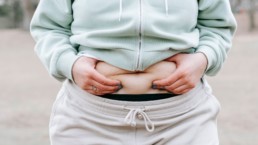Everything You Should Know About a Tummy Tuck After Pregnancy

Pregnancy and childbirth is a transformative journey for many women. Hormonal changes, weight gain, and stretched muscles are among the changes your body undergoes. This often leaves excess fat and sagging skin in the mid-body.
Therefore, you need a tummy tuck after pregnancy to restore your abdominal area’s body shape and tone your skin. This medical procedure removes excess tissue and fat in your body, restoring your original figure. Learn more from this post.
What to Expect From a Tummy Tuck After Pregnancy?
Mothers undergo a tummy tuck to restore their shape in the abdominal area. This procedure is also called an abdominoplasty. Although the tummy tuck procedure differs depending on the patient’s needs, it involves two incisions, one around your belly button and another on the bikini line.
The two incisions expose the extra fat and tissues in the abdominal area before removal through liposuction treatment. You should expect the following from a tummy tuck after childbirth.
- Tightening and repair of stretched and torn abdominal muscles
- A flatter and firmer tummy
- Toned skin free of stretch marks
Note that a tummy tuck for post-pregnancy is ideal for mothers who have attained their ideal body weight. Therefore, ensure you lose any extra weight through exercises and a healthy diet before surgery.
When to Have a Tummy Tuck?
You need a tummy tuck after the birth of your child if:
- You have extra skin or fat around your belly button
- Your lower abdominal muscles are weak.
- You want to improve your body image.
The ideal time to have a tummy tuck for post-pregnancy is after attaining a stable, healthy weight. Your child should be six months old or more before scheduling a tummy tuck surgery.
Doctors recommend this time to help you lose extra weight through exercise and dieting before surgery. This prevents further stretching of the abdominal skin after a tummy tuck, which may result from losing additional weight.
Besides, your body needs time to heal completely and reposition its tissues after childbirth before you undergo this surgery.
Schedule a Tummy Tuck and Restore Your Figure
Your baby’s arrival after pregnancy is a source of joy. But low self-esteem can ruin the moment. Consider a tummy tuck to avoid losing your attractive figure and flawless skin after childbirth.
If you want a tummy tuck in Tijuana, we’ve got you covered. Our team of doctors will help you regain your figure and restore your skin tone after birth. You can visit us at Hospital BCN in Tijuana, Mexico. Contact us for more details today.
Which Surgery Is Best For Weight Loss?

When it comes to achieving your ideal weight, there are various types of weight loss surgery in Mexico that you can choose from. However, choosing the right one for you can be a challenge. Luckily, it doesn’t have to be.
Keep reading, and we’ll talk about some of the various bariatric surgeries that are popular right now.
Which Weight Loss Surgery Is Right For Me?
When it comes to determining which weight loss surgery is best for me, there are several factors you should consider:
How Much Weight You Want To Lose
Everyone is coming from a different starting place. Some people are morbidly obese, and other people may just want to lose a few pounds here and there.
Depending on your overall weight goals, a different bariatric surgery may be better for you.
Your Current Health
Aside from pure weight, you may have certain health issues that you’re dealing with. People who are suffering already from heart disease, obesity, arthritis, or other painful or chronic conditions may be at higher risk for illnesses caused by obesity.
For that reason, they may look to surgeries that help you lose weight even faster than normal.
Qualifications
There are certain requirements for bariatric surgery, depending on which option you go with. You may need to be within a certain age range, have particular cholesterol or blood pressure, or have a certain BMI.
Types Of Bariatric Surgeries
Understanding which surgery is better for weight loss means knowing your options. Let’s learn some important facts about some of the various types of bariatric surgeries available:
Sleeve Gastrectomy
This divides your stomach into two parts. Essentially, it creates a new, smaller pouch that’s shaped like a banana. Your new, smaller stomach will allow you to eat less food and still feel fulfilled.
Therefore, you will not consume as many calories or absorb as much nutrition. While you need to change your eating and diet habits, you can slim down incredibly quickly with gastric sleeve surgery.
Gastric Bypass
This is also called Roux-en-Y surgery. Gastric bypass surgery is performed by dividing the stomach into two parts and then creating a pouch where your food can then reside. Then, the pouch is connected to the lower part of your small intestine. Therefore, you absorb fewer nutrients.
Duodenal Switch
This is sort of a hybrid between gastric sleeve surgery and gastric bypass surgery. It connects your reshaped stomach to your small intestine.
Learn Your Options Today
Reach out to Hospital BCN now. Your new weight and new look is just around the corner – so don’t hesitate.
Why You Have Hiccups After Your Sleeve Gastrectomy

If you’re considering gastric sleeve surgery, there are a few symptoms that you should be aware of. For instance, some people may experience hiccups after gastric sleeve surgery. Let’s discuss the nature of gastric sleeve hiccups and what you can do to keep them to a minimum.
That way, your post-operative life is as comfortable as possible during your recovery toward optimal weight loss.
Why Do Hiccups Happen After A Sleeve Gastrectomy?
Let’s answer some common questions:
- Why do I burp so much after gastric sleeve?
- Is burping after a gastric sleeve common?
- Is it normal to have hiccups after sleeve surgery?
Hiccups are muscle spasms of your diaphragm. This can occur when you swallow too much food or gas at one time, such as air.
Ultimately, it’s akin to muscle contractions to relieve pressure in your stomach. Many times patients notice hiccups and burping after their surgery. Luckily, these symptoms tend to subside with time.
How To Reduce Hiccups After A Gastrectomy
Food portion control is the primary culprit and therefore the primary focus when trying to reduce your hiccup frequency. Try to eat mindfully, as hiccups and gastric sleeve are linked to food consumption. So be aware of the amount of calories you’re eating and the size of the meal.
Also try to eat when there aren’t that many distractions. That way you can focus on the food itself and avoid stuffing yourself. It’s important to be mindful because you don’t want to treat eating as a pleasure source as you may have in the past.
It should be used as a nutritional tool. And of course, this also helps you heal faster after your gastric sleeve operation.
Note Your Hiccup Episodes
It’s useful to keep a journal or some other way to document when you have hiccups. If it seems it’s becoming more frequent than normal, then you should reach out to your doctor.
Also keep a journal of the food and beverages that you consume. You may notice that hiccups increase depending on your diet.
Learn About Gastric Sleeve And Hiccups Today
If you’re considering gastric sleeve in Mexico, then Hospital BCN is your source. Our weight loss surgeons specialize in treating patients who are experiencing obesity and want to change their appearance and physical health.
We help you with the proper preparation, risk mitigation, and post-operative care. Your dreams can come true but you have to act. It’s time to start feeling and looking the way you’ve always wanted to, so contact us for a free consultation today.
Lipo vs Gastric Sleeve: Key Differences

If you’re looking to lose weight and feel better about your body, then liposuction and gastric sleeve surgery are two popular options. However, while they may achieve similar goals, they’re quite different in their approach. Let’s talk about the difference between liposuction vs gastric sleeve.
As always, you should consult a surgeon to understand your unique case and what option might be best for you. But this will help you begin that investigation process.
Further Reading: How Much Weight Do You Lose With Lipo?
Gastric Sleeve vs Liposuction
Liposuction
Liposuction is primarily designed to remove fat from your body. Your body only has a certain number of fat cells. Once these fat cells are removed, there’s less volume that can occur in that area. That’s why a lot of people have liposuction done on their problem areas like their waist or hips.
Essentially, equipment sucks the fat out of your body. But keep in mind that fat cells can regenerate over time. So if you don’t make any additional lifestyle choices, such as a better diet and exercise, then the fat can come back.
Gastric Sleeve Surgery
With gastric sleeve surgery, around 80% of your stomach will be taken out. After around 12 to 24 months, you will reduce your weight significantly. This is because you won’t be able to eat as much and you’ll feel full much faster.
Therefore, when comparing gastric sleeve vs liposuction, the main difference is that one simply removes the fat directly. The other removes your desire to consume calories, leading to less body weight and fat.
With a combination of diet, exercise, and supplements, either of these surgeries can help you reach your weight loss goals.
Is Liposuction Permanent?
Liposuction is not permanent. If you don’t make any changes to your daily routine, then your fat will come back. You need to reduce your food intake and improve your lifestyle. The same goes for gastric sleeve surgery.
While gastric sleeve surgery is permanent, any kind of weight loss plan involves a holistic approach. Luckily, the surgeons at Hospital BCN can help you create a plan to help you lose weight quickly and keep it off for the long run.
Get A Consultation For The Difference Between Gastric Sleeve vs Lipo
If you’re looking for bariatric surgery or liposuction in Tijuana, Mexico, then the doctors at Hospital BCN can help.
Our expert surgeons are accustomed to helping you transform your body into the vision of your dreams, so don’t hesitate. Contact us now and make an appointment.
Gastric Sleeve And Pregnant Women: Is It Safe?

If you’re considering gastric sleeve in Mexico, you might be wondering about your ability to carry a child afterward.
For instance, people often ask, “How soon can you get pregnant after a gastric sleeve surgery?”, “Can you get pregnant a month after gastric sleeve?” and other questions about pregnancy after gastric sleeve.
Let’s talk about some of the facts when it comes to gastric sleeve and pregnancy:
Pregnancy And Gastric Sleeve
A gastric band surgery doesn’t change your anatomy. It’s restrictive. That means you won’t wear out your stamina or cause nutritional deficiencies. With gastric band surgery, you just need to release some of the pressure of the gastric band.
With other surgeries like gastric sleeve surgery or gastric bypass surgery, you should have a blood test before getting pregnant. That will help you understand your body is ready.
Ideally, you should wait one to one and a half years to decrease your risks after one of these surgeries.
Can I Get Pregnant After Gastric Sleeve?
Luckily, the results from surgery can reduce your obesity. Therefore, it will be easier to conceive and achieve pregnancy after sleeve gastrectomy. However, you should always take the necessary precautions and consult with your surgeon. That’s why giving yourself time is so important.
Also, many women wonder about what their sex life will look like after the procedure. As with anything, the answer will depend on your specific health and risk factors. But never hesitate to reach out to Hospital BCN’s surgeons for more information.
Nutrition For Getting Pregnant After Weight Loss Surgery
Understand that your body will change the way that it stores and consumes nutrition. Make sure you’re supplementing vitamin D, B12, iron, calcium, and other important vitamins and nutrients.
Your weight loss surgeon can help you suggest some supplements to take to make your body as prepared as possible to become pregnant after your weight loss operation.
Consulting An OB-GYN
Also be sure to be in constant contact with your OB-GYN. Since they specialize in women’s reproductive systems, they should be a part of your decision as well.
Dealing With Weight Gain During Pregnancy
Understand that it’s natural to gain weight when you’re pregnant. This may affect your self-esteem since you’re used to your lighter weight after the surgery.
However, this is a temporary phenomenon. As long as you stick to proper nutrition and diet after your pregnancy, you can get back to your previous weight again.
Learn More About Pregnancy After Gastric Sleeve
Can you get pregnant with a gastric sleeve? Yes. But reach out to the experts at Hospital BCN first. Our compassionate and experienced weight loss surgeons can answer any questions you may have.
We can help you understand if you qualify, the best way to recover quickly, and how to ensure you can have a safe pregnancy.
Constipation And Bowel Movements After Gastric Sleeve Surgeries

Gastric sleeve surgery is an excellent change to your health. However it does come with some side effects like constipation or a slow bowel movement after gastric sleeve. Surgeons will take around 80% of your stomach out during a gastric sleeve procedure.
This change to your anatomy means that you don’t feel as hungry and you actually feel full faster. However, there are some side effects that you may not desire as much like diarrhea, constipation and potentially nausea.
Constipation occurs typically within the first few weeks or months after your weight loss operation. You might find it difficult to eat fiber or drink as much as you’re used to. You may also be taking medications and changing your diet in a big way.
So in this article, let’s talk about why you might have gastric sleeve constipation post-op and what you can do about it.
How To Know If You’re Having Constipation From Gastric Sleeve
Your bowel habits should happen almost once per day. If it happens less than three times a week, then you might be constipated. There are some symptoms that can also alert you to constipation, like:
- Cramps
- Feeling like you need to go to the bathroom but can’t
- Hard stool
- Straining to go to the bathroom
- Infrequent bowel movements
Is It Normal To Have Constipation After Gastric Sleeve Surgery?
Yes, it is absolutely normal to have it after your bariatric surgery. However, it should only last for around six months. If it lasts longer than that, you should consult with a doctor.
Reasons Why You Have Constipation After Gastric Sleeve Surgery
Here are some of the reasons why constipation can occur after Gastric Sleeve in Mexico:
Digestion
The way you digest food changes after you have gastric sleeve surgery. Since your stomach is now smaller, it may take longer for your body to digest it.
That means it moves through your microbiome at a slower pace. For this reason you should follow a strict post-op diet.
Eating Less Fiber
It becomes more difficult to eat fiber after gastric sleeve surgery. Since fiber is an important part of breaking down your stool, this can create constipation.
Dehydration
When you’re dehydrated, it’s harder for the stool to move through your bowel system.
This makes you feel full without actually being able to pass your food all the way through. That’s one of the reasons there’s a connection between gastric sleeve and constipation.
Changes In Diet
You’re going to be going through some dietary changes after your surgery. This is to help you recover best. However, it also will affect your bowel habits.
One of those side effects could be feeling constipated. Some medications slow down your metabolism. This is the case with things like opioid pain relievers.
Movement Practices
If you’re not exercising or moving very much, then it can slow down how quickly your body works. You should be slowing down a little bit after surgery, so it’s natural to have some mild constipation as you’re recovering.
How To Treat Constipation After Bariatric Surgery
When you speak with your surgeon, they can give you some advice on proper ways to deal with your constipation.
However, in general, there are a few different methods you might try, such as over-the-counter medications. Milk of magnesia, Dulcalax, Colace, and more can help you increase the speed of your stool.
Staying hydrated by drinking plenty of water is another way. And of course, you should eat fiber and exercise. Proper diet and nutrition go along with any kind of surgery recovery.
This is especially the case with bariatric surgery, since you need to accustom your body to the new changes.
Learn More About Gastric Sleeve Surgery Today
Reach out to Hospital BC and connect with a qualified surgeon who can help you lose weight and enjoy regular bowel movements sooner rather than later.
That way you can start enjoying a new figure without as many of the complications or side effects.
Sweet Dreams: How to Get a Good Night’s Sleep Following Gastric Sleeve Surgery

Bariatric surgery, such as gastric sleeve surgery, can be life-changing. But the road to recovery can mean some challenges, including getting a good night’s sleep. Other lifestyle changes like sex after bariatric surgery or dieting after bariatric surgery can also affect sleep quality.
Read more: The Real Truth About Sex After Gastric Sleeve Surgery.
A gastric sleeve surgery patient may have trouble falling asleep and staying asleep. Experience restlessness, be a light sleeper, or frequently wake up throughout the night. The combination of these can lead to feeling exhausted the following day.
1) Create a Comfortable Sleeping Environment
The first step to getting a good night’s rest after gastric sleeve surgery is creating an environment conducive to sleep. If needed, consider investing in a new mattress, blackout curtains, and noise-canceling headphones. You may also find it helpful to set the temperature of your bedroom slightly lower at night or use a white noise machine for better sleep.
2) Avoid Late Night Eating and Drinking
In the weeks leading up to your gastric sleeve surgery, avoiding eating or drinking late at night is essential. This is especially true after surgery: you should not consume food or liquids within two hours of bedtime. Doing so can result in acid reflux or other digestive issues that can interfere with sleep.
Acid reflux is a frequent impact of gastric sleeve surgery. If you have it, try napping with your head in a comfortable position to limit acid reflux symptoms.
3) Establish a Sleep Routine
Establish a constant sleep movement to enhance your probability of getting the best night’s rest. Try to wake up and sleep each day simultaneously, even on weekends. A regular sleep agenda helps your body alter its circadian rhythm, enhancing your probability of restful sleep.
4) Exercise Regularly
Regular bodily recreation helps you sleep more at night. Aim for at least 30 minutes of exercise each day. The excellent time to exercise is in the morning and early afternoon, as exercising during bedtime can intrude on your capability to fall asleep later. For example, if you sleep on the mattress at 10 pm, keep away from exercising after eight pm.
5) Manage Your Pain
Pain can intrude on your ability to fall asleep and continue asleep during the night. After gastric sleeve surgery, you may have pain in your stomach or different areas. Take pain medicines as your health practitioner prescribes to control your ache and make sleeping easier. Additionally, if you are having a problem sleeping, speak to your physician about different methods to control post-surgery aches that can enhance your pleasant rest.
6) Practice Relaxation Techniques
Relaxation methods can be recommended to support you in going with the flow into a slumber. Try muscle relaxation, meditation, or listening to a soothing song earlier than bedtime as part of your nightly routine. These things can assist in minimizing stress and anxiety in the body, making it less difficult to fall asleep.
7) Choose the Right Pillow
Some pillows will help your physical health and keep you cozy in a sleep position. After gastric sleeve surgery, selecting a pillow that gives neck and lower back assistance while additionally being gentle to cushion the belly place is essential. Talk to your medical doctor or health care professional about the exceptional kind of pillow for you based on your needs.
Call Hospital BCN for the best gastric sleeve in Mexico. We provide access to the best medical team and aftercare services that enable our patients to get a good night’s rest after gastric sleeve surgery.
What Is the Expected Weight Loss From Gastric Sleeve Surgery?

Weight loss surgeries have become increasingly popular to help people struggling with obesity achieve their health goals. Every surgery has its own unique set of benefits and risks.
Gastric sleeve surgery removes a large part of the stomach to create a smaller pouch, reducing food intake and leading to weight loss. This surgery cannot be reversed, nor can it be repeated. Once the portion of the stomach is removed, it cannot be put back. Instead, you may choose a gastric revision surgery to improve the weight loss or address other complications.
Read more: Can You Have Gastric Sleeve Surgery Twice – Is It Possible?
Similarly, many questions have been asked regarding weight loss surgeries. One central question is, how much weight can you lose after a gastric sleeve surgery? Let’s find out.
What is Gastric Sleeve Surgery?
It is a surgical procedure where 80-85% of the stomach is removed. A small portion is shaped like a sleeve that runs between the esophagus and the small intestine. The stomach is stapled closed. A sealant prevents gastric fluids from leaking into the abdominal cavity.
Gastric sleeve surgery has two primary approaches:
- Reducing stomach capacity – Stomach size is reduced to about 15%. This reduces the quantity of food intake.
- Eliminate ghrelin – The portion of the stomach that produces the hunger hormone, ghrelin, is removed. This way, the individual feels less hungry.
Benefits of Gastric Sleeve Surgery
- No nutritional deficiencies.
- It is safe for severely obese individuals.
- Laparoscopic techniques can be used as a procedure.
- Manages type II diabetes in 80 percent of patients to the point of remission.
- Improves or eliminates hypertension.
- Allows for rapid weight loss after surgery.
- It helps enhance patients’ quality of life.
How Much Weight Will I lose?
The weight you will lose depends on a few factors. They are:
- Diet: A healthy diet is necessary for sustainable weight loss.
- Exercise: Exercise can help to maintain a healthy body.
- Lifestyle: An individual’s lifestyle plays a vital role in the amount of weight lost. For example, being active and moving around is more beneficial than sitting in one place for hours.
- Size of Your Stomach: The smaller the size of your stomach after surgery, the lesser food you will be able to consume.
- Being Obese: The amount of weight loss from a gastric sleeve surgery is higher for those who are severely obese.
How To Ensure Maximum Weight Loss After the Surgery?
The average weight loss in a person depends on their height and weight.
Weight loss after gastric sleeve surgery can be maintained with a healthy and nutritious diet. Regular exercise and an active lifestyle are essential. You should drink plenty of water, at least eight glasses per day. It is better to limit the intake of ’empty calories’ like sugars and starches.
However, if an individual return to their previous eating habits and exercise levels, weight regain may occur. Keep in mind that maintaining weight loss requires sustained effort.
Gastric sleeve surgery is an effective procedure and should not be taken lightly.
Getting professional help is essential if you consider gastric sleeve surgery as a solution for obesity. To learn more about Gastric Sleeve in Mexico, contact Hospital BC. We have experts who can help you with your weight loss journey.
How To Get Rid of Seroma After Tummy Tuck?

One of the popular weight loss solutions is getting a tummy tuck, also known as abdominoplasty. This option involves removing excess fat and skin, tightening the abdominal muscles, and repositioning the navel to create a more appealing figure.
Read more: How Long Does a Tummy Tuck Procedure Take From Intake to Dismissal?
However, one of the possible post-operative complications is seroma formation. Seromas are fluid pockets that collect beneath the skin after tummy tuck surgery. They can cause discomfort and swelling in the area. Read on to understand how to eliminate a seroma after a tummy tuck.
How Is Seroma Formed and How Can It Be Avoided?
Seroma is a collection of fluids in the area where the tissue was removed during a tummy tuck procedure. Seroma can be caused by several factors, including:
1) Excessive handling of the tissue during the procedure
2) Poor drainage from the surgical site
3) High tension placed on the skin flap after a tummy tuck
4) Too much pressure applied to the area
Some signs of seroma are:
a) Swelling
b) Skin discoloration
c) Hardened area in the surgical site
d) Fluid drainage from the incision
To avoid seroma, following your doctor’s post-operative instructions is essential.
Here are some ways to treat seroma.
1) Pressure Garment
A pressure garment is made of an elastic material that applies pressure and helps reduce swelling. This garment should fit snugly around the surgical site, which will help to shrink the seroma.
2) Sterile Dressings
Your doctor may recommend you change your sterile dressings regularly to ensure proper healing and to prevent infection.
3) Massage Therapy
Massaging the area gently can help to reduce the swelling. This should be done in a circular motion with light pressure.
4) Drainage Tube
Your doctor may insert a drainage tube to remove excess fluids or blood from the seroma. The tube will then be removed, and the healing process can continue.
5) Steroid Injections
Steroids are injected directly into the seroma to help reduce swelling and promote healing. This should only be done as a last resort, as these injections may cause side effects.
Tips To Prevent Seroma
Seroma occurs when the body accumulates fluids in the area where the tissue was removed. Here are some tips to prevent seroma:
1) Quilting
Quilting is stitching the skin together to provide support and reduce tension in the area. This can help prevent seromas from occurring.
2) Avoid Excess Movement
Excessive movement can cause the tissue in that area to become damaged or dislodged, leading to seroma formation. Keeping the surgical site as still as possible is essential to prevent this.
3) Keep the Area Clean
Keeping the surgical site clean is essential to prevent infection, which can lead to seroma formation. Be sure to wash your hands thoroughly before and after cleaning the area.
4) Monitor Your Diet
Eating a balanced diet with plenty of fluids reduces swelling and promotes healing. Foods like salmon, nuts, and leafy green vegetables provide essential nutrients needed for healing.
Contact Hospital BC for the best tummy tuck procedure in Tijuana. We provide the most innovative and safest tummy tuck procedures with our highly experienced and certified plastic surgeons.
What To Expect After Liposuction?

Liposuction is a surgical procedure that can provide long-lasting results for those looking to remove unwanted fat. It involves suctioning fat deposits from specific body areas and can be done on almost any area, including the abdomen, thighs, arms, and neck. Many factors affect the recovery and results of liposuction surgery. These include age, lifestyle, and health.
Read more: Is There an Age Limit on Liposuction?
If you are considering liposuction surgery, you must know what you can expect in the weeks and months following your procedure. Each individual’s experience will vary, but there are some general things that you can expect. We will discuss the ten most common things patients experience after liposuction surgery.
1) Small Amount of Swelling
During a liposuction procedure, fat cells are removed from the body, and this causes swelling. Swelling is normal after a liposuction procedure and will start to subside within a few days of your surgery. Your doctor may give you compression garments or bandages to help reduce swelling.
2) Localized Soreness
You may experience some localized pain and soreness in the treated areas. This happens due to the skin and underlying tissue trauma during the liposuction procedure.
Pain medication can help reduce discomfort.
3) You Will Experience Drainage
Drainage is one of the most common and important things to expect after liposuction surgery. This is normal, as it helps eliminate fluids that accumulate during the surgical procedure. In some cases, small drains are used to help with this process. These are typically removed in a few days or weeks, depending on your specific situation and the advice from your doctor. Drainage can last for several weeks, so it’s essential to wear a particular garment with sealed pockets to contain the drainage. These garments are usually provided by your doctor and should be worn to help heal.
4) Your Skin Will Retract
Immediately after liposuction surgery, you may notice that your skin appears loose and wrinkled. Don’t worry—this is perfectly normal! This occurs because the underlying fat cells have been removed, leaving more space than before. Your skin will naturally tighten over time as it adjusts to its new contours. Wearing a compression garment while your skin is retracting can help to speed up the process. In some cases, additional treatment may be needed to help with this issue. Talk to your surgeon about what you can do at home and any additional treatments that may be recommended.
5) Numbness May Occur
Another common thing to expect after liposuction surgery is some degree of numbness. As a result of the trauma to the surrounding area, it’s common for the skin and muscles in the treatment area to be slightly numb. This typically resolves on its own as nerve endings heal. In some cases, the area may have a slight tingling sensation or tenderness.
Liposuction is a popular cosmetic procedure that can help you achieve a more sculpted and contoured figure. However, it is essential to understand what to expect after your surgery. Hospital BC offers the best liposuction in Tijuana. Our highly trained surgeons can help you achieve the desired body contouring results.

